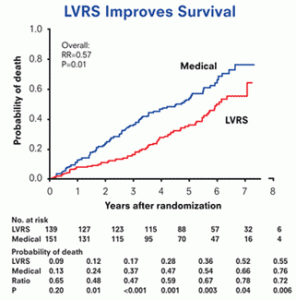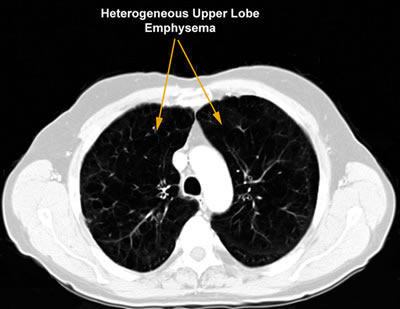What is emphysema and how does it occur?
- Emphysema is a chronic airway disease caused by abnormal and permanent enlargement of the lung tissue and terminal airways.
- Smoking and consumption of tobacco products are the most common causes of emphysema.
- Continuous exposure to polluted air and genetic diseases can be counted among the other causes.
What are Emphysema Treatment Methods?
- Emphysema is a disease treated with drugs.
- In advanced cases, additional mechanical supports may be required to provide respiration.
- Emphysema is treated by pulmonologists.
- However, in some cases of emphysema, your doctor may tell you that surgery can be performed. In this case, the opinion of the thoracic surgeon is consulted and the surgical procedure can be performed after the necessary evaluations and additional tests are performed.
Why Should I Have Emphysema Surgery?
Patients with emphysema who can benefit from surgery are very few. Rarely, in the case of progressive disease where medications are not sufficient, surgical intervention is required to prolong the life of the patient. Thus, when inhaled, the non-working air spaces remaining in the cavities in the lungs are removed and more comfortable breathing can be achieved with the remaining healthy lung.
What do International Sources recommend?

It has been proven that emphysema patients with certain criteria live longer with surgical treatment. In which patients surgical treatment can be applied can only be determined by the joint decision of chest diseases and thoracic surgeons.
Graphic, patients who underwent emphysema surgery (LVRS) had a lower mortality rate than those who received drug therapy.
What are the Emphysema Surgery Methods?
To operate only one lung or 2 lungs at separate times with the open method orIt is possible to perform these procedures with the endoscopic method (Videothoracoscopy – VATS).
With these methods, the air-filled non-working areas on the outside of the lungs are removed and the patient’s breathing is facilitated by ensuring the development of healthy lungs.
With an incision under both breasts or opening of the breastbone, it is possible to intervene in both lungs in a single session. This selection should be made according to the patient and the condition of emphysema.
What are the Risks of Emphysema Surgery?
- The presence of air leaks from the lungs,
- the need for long-term intensive care treatment,
- bleeding
- application of reoperation
- infection and
- Death may occur.
To reduce these risks, necessary precautions should be taken before the surgery and the risks should be minimized.
The lower lung computed tomography shows air-filled emphysema areas that need to be surgically removed.

How Many Days Should I Stay in the Hospital for Surgery?
After each of the procedures to be performed in two separate sessions for the right and left lungs, you should stay in the hospital for 7-10 days.
In some cases, unilateral operation may be sufficient. In this case, the operation for the second side can be performed between a few months and a few years after the patient’s complaints arise.
How is Emphysema Surgery Performed?
Air-filled dead spaces around the lungs are removed. Special precautions are taken to prevent air leaks from these areas. At the end of the surgery, a drain is placed in the chest cavity and a special (epidural) catheter is used to prevent pain. After the operation, the patient is followed up in the intensive care unit for 1 or 2 days.